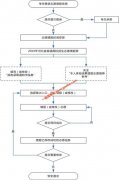2020浙江高考英语真题试卷(7月试题word版含答案)(2)
Among the writers of the plays in this collection, Paul Green, Susan Glaspell, Maxwell Anderson, Thornton Wilder, William Saroyan, and Tennessee Williams have all received Pulitzer Prizes for their contributions to the theater. More information about the playwrights will be found at the end of this book.
To get the most out of reading these plays, try to picture the play on stage, with you, the reader, in the audience. The houselights dim(变暗). The curtains are about to open, and in a few minutes the action and dialogue will tell you the story.
21. What do we know about the author from the first paragraph?
A. He has written dozens of plays. B. He has a deep love for the theater.
C. He is a professional stage actor. D. He likes reading short plays to others.
22. What does the author avoid doing in his work?
A. Stating the plays’ central ideas. B. Selecting works by famous playwrights.
C. Including various types of plays. D. Offering information on the playwrights.
23. What does the author suggest readers do while reading the plays?
A. Control their feelings. B. Apply their acting skills.
C. Use their imagination. D. Keep their audience in mind.
24. What is this text?
A. A short story. B. An introduction to a book.
C. A play review. D. An advertisement for a theater.
B
The traffic signals along Factoria Boulevard in Bellevue, Washington, generally don’ t flash the same length of green twice in a row, especially at rush hour. At 9:30 am, the full red/yellow/green signal cycle might be 140 seconds. By 9:33 am, a burst of additional traffic might push it to 145 seconds. Less traffic at 9:37 am could push it down to 135. Just like the traffic itself, the timing of the signals changes.
That is by design. Bellevue, a fast-growing city, just east of Seattle, uses a system that is gaining popularity around the US:intersection(十字路口) signals that can adjust in real time to traffic conditions. These lights, known as adaptive signals, have led to significant declines in both the trouble and cost of travels between work and home.
“Adaptive signals can make sure that the traffic demand that is there is being addressed,” says Alex Stevanovic, a researcher at Florida Atlantic University.
For all of Bellevue’ s success, adaptive signals are not a cure-all for jammed roadways. Kevin Balke, a research engineer at the Texas A&M University Transportation Institute, says that while smart lights can be particularly beneficial for some cities, others are so jammed that only a sharp reduction in the number of cars on the road will make a meaningful difference. “It’s not going to fix everything, but adaptive signals have some benefits for smaller cities,” he says.
In Bellevue, the switch to adaptive signals has been a lesson in the value of welcoming new approaches. In the past, there was often an automatic reaction to increased traffic: just widen the roads, says Mark Poch, the Bellevue Transportation Department’s traffic engineering manager. Now he hopes that other cities will consider making their streets run smarter instead of just making them bigger.
25. What does the underlined word “that” in paragraph 2 refer to?
A. Increased length of green lights. B. Shortened traffic signal cycle.
C. Flexible timing of traffic signals. D. Smooth traffic flow on the road.
26. What does Kevin Balke say about adaptive signals?
A. They work better on broad roads.
B. They should be used in other cities.
C. They have greatly reduced traffic on the road.
D. They are less helpful in cities seriously jammed.
27. What can we learn from Bellevue’ s success?
A. It is rewarding to try new things. B. The old methods still work today.
C. It pays to put theory into practice. D. The simplest way is the best way.
C
Challenging work that requires lots of analytical thinking, planning and other managerial skills might help your brain stay sharp as you age, a study published Wednesday in the journal Neurology suggests.
Researchers from the University of Leipzig in Germany gathered more than 1, 000 retired workers who were over age 75 and assessed the volunteers’ memory and thinking skills through a battery of tests. Then, for eight years, the scientists asked the same group to come back to the lab every 18 months to take the same sorts of tests.
Those who had held mentally stimulating(刺激), demanding jobs before retirement tended to do the best on the tests. And they tended to lose cognitive(认知)function at a much slower rate than those with the least mentally challenging jobs. The results held true even after the scientists accounted for the participants’ overall health status.
“This works just like physical exercise,” says Francisca Then, who led the study. “After a long run, you may feel like you’re in pain, you may feel tired. But it makes you fit. After a long day at work — sure, you will feel tired, but it can help your brain stay healthy. ”
It’s not just corporate jobs, or even paid work that can help keep your brain fit, Then points out. A waiter’ s job, for example, that requires multitasking, teamwork and decision-making could be just as stimulating as any high-level office work. And “running a family household requires high-level planning and coordinating(协调),” she says. “You have to organize the activities of the children and take care of the bills and groceries.”
相关信息

2020年甘肃省普艺术类专业统考科类与艺术类本科专业对应表
2020年甘肃省普通高校招生艺术类专业统考科类与艺术类本科专业对...

2020年甘肃省高考体育、艺术类专业招生工作实施办法
为规范实施2020年甘肃省普通高等学校体育、艺术类专业招生工作,...

安徽省2020年普通高校招生工作实施意见(高考招生)
普通高校招生工作应贯彻公平竞争、公正选拔、公开透明的原则,德...

2020年江苏高考英语真题试卷(word版含答案)
英语试题 第一部分 : 听力(共两节 , 满分20分) 做题时,先将...

2020年江苏高考地理真题试卷(word版含答案)
地理试题 一、选择题(共60分) (一)单项选择题:本大题共18小...

2020年江苏高考历史真题试卷(word版含答案)
历史试题 一、选择题:本大题共20题,每题3分,共计60分。在每小...

2020年江苏高考政治真题试卷(word版含答案)
政治试题 一、单项选择题:本大题共33小题,每小题2分,共计66分...

2020年江苏高考语文真题试卷(word版含答案)
绝密 ★ 启用前 2020年普通高等学校招生全国统一考试(江苏卷) ...

河北2020年普通高考志愿填报须知
考生志愿是考生本人升学意愿的真实表达,是投档及录取的重要依据...

安徽2020年高考网上志愿填报办法
2020年我省普通高校招生继续实行志愿网上填报(含征集志愿)。为...
Copyright © 2006 - 2018 www.gaokw.com Inc. All Rights Reserved 一品高考网版权所有 |
